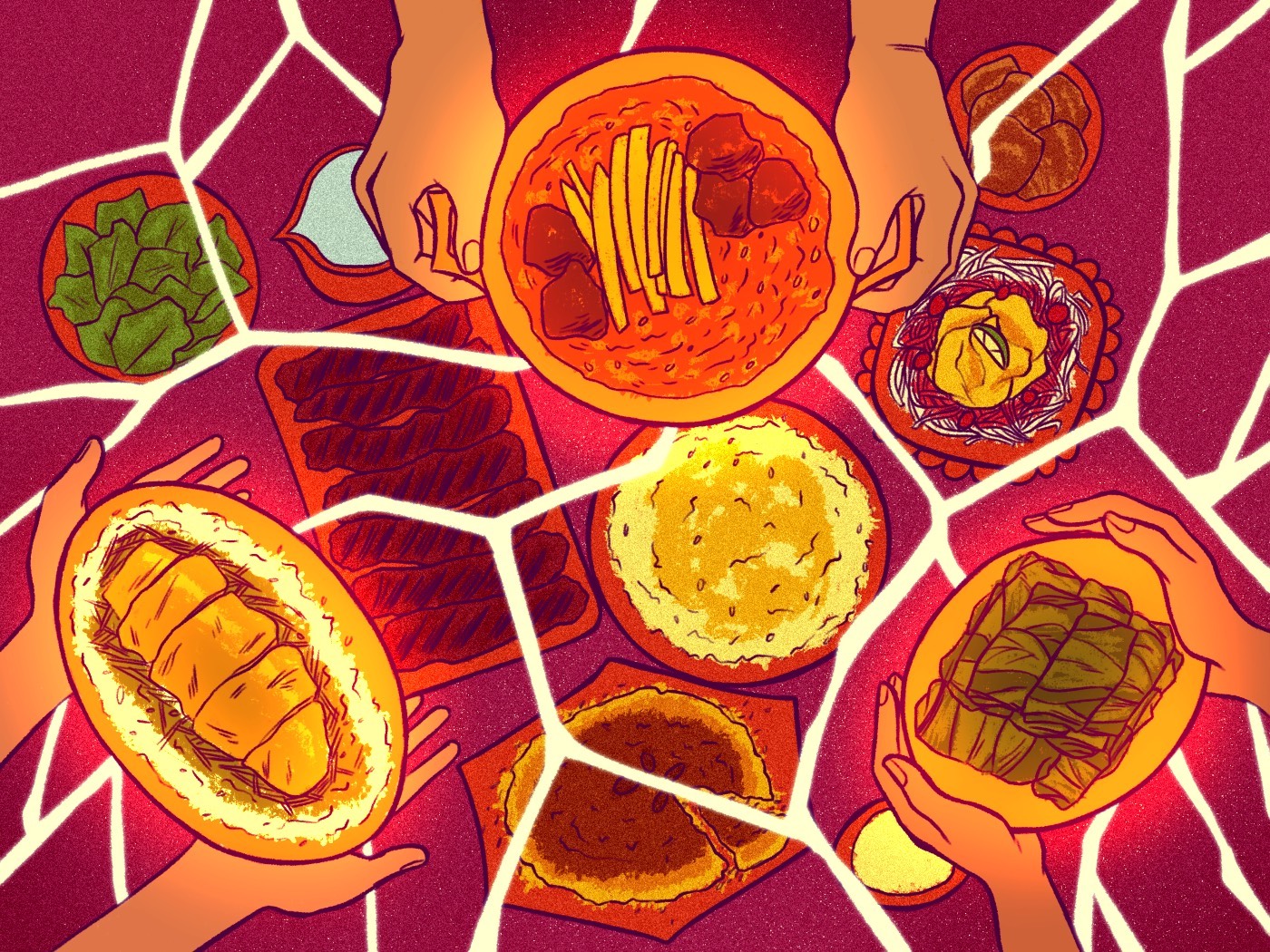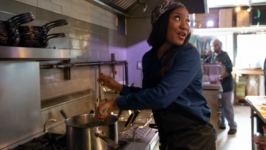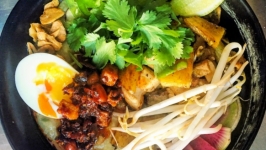A Love Letter to Nonna’s Persian Food
For over 30 years, my Friday nights have been filled with Shabbat dinner tables stuffed with foods boasting aromas, flavors and colors that evoke the essence of a region I was never allowed to visit. First while growing up in Italy, then in the United States, the weekend supper has always consisted of extended family time peppered by a rainbow of tahdeeghs, khoreshts, kabobs and a multitude of rice dishes that my mother, grandma and older relatives grew up eating in Iran.
“It’s my wish,” my grandma Margaret tells me every time I ask her whether she’d go back to Iran. “Just to see how it is.” Nostalgia permeates everyone’s thoughts about the past, which always seems more delightful when seen through the present, but her tear-filled eyes tell a different sort of sadness.
Born and raised in Tehran, my now 80-year-old Nonna (being her first grandchild and Italian being my first language, I was unknowingly tasked with the honor of bestowing her a name that has now stuck through nine grandchildren and a great-grandchild) was chased out of her hometown during the 1979 Iranian revolution. At the age of 39, she flew to New York with a white passport, two teenage daughters and a three-month-old son.
Her sin? Being Jewish. Although Queens welcomed her alongside thousands of other Persian Jews facing the same persecution, the city was the antithesis of the life she was used to. Proudly boasting about an American dream that sounded accepting, her new country couldn’t deliver the customs, foods and traditions that made up the essence of her former home. Her dream was already fulfilled in Iran and she had never asked for a new one. “We were so happy there,” she says constantly.
To deal with the change, she reconstructed a semblance of what was lost through food: What better way to develop a sense of home than to prepare fare—at the time—only available in her beloved Iran?
“There were specialty stores in Forest Hills when we moved there,” she recalls when asked about the availability of ingredients necessary to cook sabzi polo, a rice dish with loads of chopped parsley, dill and cilantro; dolmehs, grape leaves or peppers stuffed with rice and chopped meat; and faloodeh, Persian ice cream prepared with shaved ice, lemon juice, cherries and vermicelli noodles (supposedly, a result of the silk trade route that brought Chinese products through the Middle East back in the day).
Now living on Long Island, Nonna is surrounded by stores that tend to her culinary needs (grocery shopping having evolved into a divine mission) and help her properly feed her clan. Gastronomical excellence is achieved on a weekly basis: her phenomenal khoresht gheymeh—a stew made with beans, chicken, tomato sauce, onions and split peas, to be poured on top of rice—is an amalgamation of flavors, a literal burst of deliciousness attacking one’s taste buds that no American top chef could ever re-create.
The owner of a chain of movie theaters back in Iran, my grandfather, who moved to the United States a year after the rest of his family, had to search for new work in a new land. He settled on a doughnut shop. “He would go in at 5am every day, and we’d serve breakfast and lunch,” recalls Nonna. The shop became the background of the stories we tell while sitting around our Shabbat table: From the time my mother and aunt were chased out of school by bullies and landed at the Forest Hills doughnut shop, where the chef ran out with a knife to warn the bullies about his devotion to his boss’s daughters, to endless tales about memorable customers.
The anecdotes about my grandparents’ old shop, a place I’ve never seen, are now part and parcel of the kitchen, the table and the living room I heard them in. They have gentrified Nonna’s home.
What is tradition? In a shifting world that calls for endless adaptation, a universe that incessantly stimulates us to hurry, tradition is the constant we gravitate towards. We do the same thing over and over, until the thing itself is imbued with special meaning. The tradition of eating Persian foods while welcoming our Shabbat is so embedded in our family’s culture that deviating from the norm (a rare occurrence) always feels improper, unnatural, wrong—almost like blasphemy. And if there is one thing our family tradition has taught us, it is to never attempt the blasphemous in front of our strong, beautiful, resilient Nonna.







